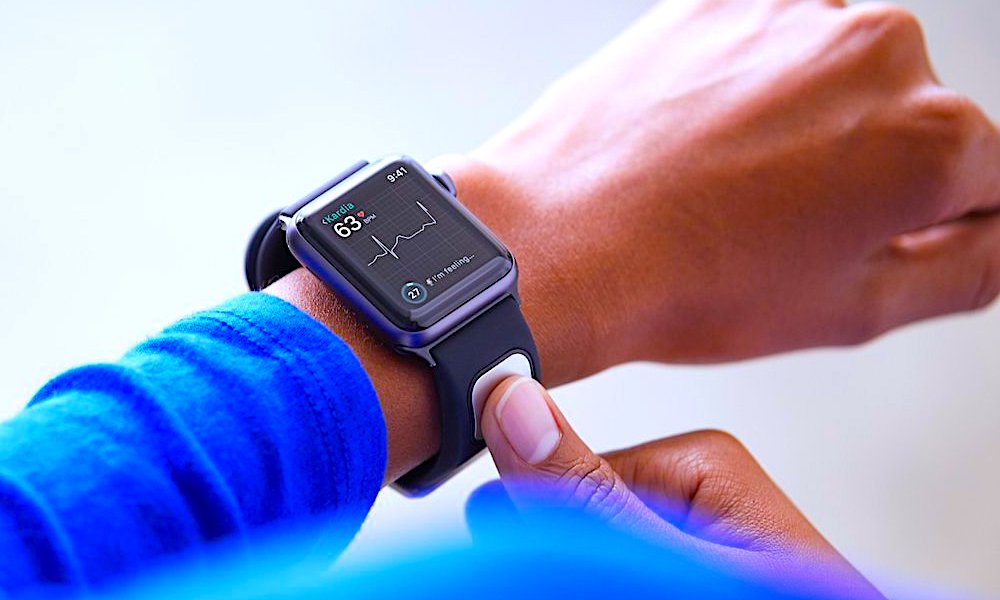Apple Watch Can Detect AFib, Hyperkalemia with 90%+ Accuracy
 Credit: AliveCor
Credit: AliveCorToggle Dark Mode
When Apple announced its first ever smartwatch in 2015, it was clearly targeting a new breed of fitness and health fanatics by offering them access to the the latest tracking tech from their wrists.
There’s no denying that the Apple Watch is an indispensable tool for people who want to keep in shape and track their health vitals, but it’s also proving to be transformative for medical professionals.
Scientists at healthtech company AliveCor have concluded a study into the benefits offered by the Apple Watch when it is paired with the KardiaBand strap to become a fully-capable ECG device.
In the study, the firm wanted to demonstrate that the Apple Watch is playing a crucial role in the healthcare world and prove that the device can be used to detect atrial fibrillation. This is often seen as a leading cause of strokes.
Set to be published in Journal of the American College of Cardiology, the study explored how the KardiaBand for Apple Watch works out AFib from a normal heart rhythm.
According to the firm, the band “successfully detected Atrial Fibrillation and normal sinus rhythm with an accuracy level comparable to physicians interpreting the same ECGs”.
The Kardia algorithm was able to discover traits of AFib and compare them to normal sinus rhythms with a sensitivity rate of 93 percent and and a specificity rate of 84 percent.
However, when a physician reviewed the recordings, sensitivity results grew to 99 percent. Researchers also found that the device can detect high potassium levels in blood (suggesting a condition called hyperkalemia) when it is used with artificial intelligence systems. “The sensitivity for hyperkalemia detection ranged between 90 to 94 percent.”
The research considered more than two-million ECG used to identify serum potassium values between 1994 to 2017. It also took data from AliveCor’s smartphone ECG monitor.
Vic Gundotra, CEO of AliveCor, said: “As our team continues to push the bounds on innovation in digital health, we are on a path to changing the way AFib and hyperkalemia can be detected, and to defining the ways in which products like Apple Watch can play a role in the future of health care.”






